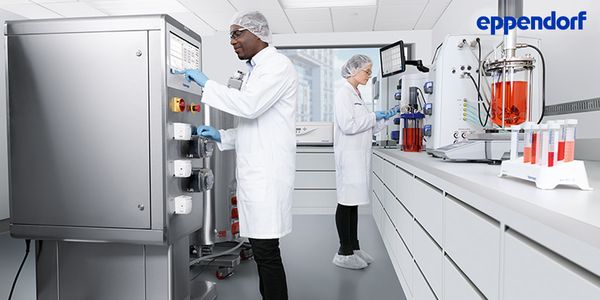The scale-up and characterization of industrial bioprocesses is to a large extent still based on empirical knowledge. With advanced algorithms and graphic processing units in the computation...
MAR 30, 2021 | 8:00 AM
DATE: March 30, 2021 TIME: 08:00am PST In this talk, we will discuss the value of moving towards modular and automated, closed-system technologies designed to enable scalable and cost-effect...
JAN 14, 2021 | 7:00 AM
DATE: January 14, 2021 TIME: 7:00am PST Transferring a biologic candidate from the research and development phase to commercial production usually requires increasing the working volume...
DEC 15, 2020 | 10:00 AM
DATE: December 15, 2020 TIME: 10:00am PST Scientists from Thermo Fisher Scientific will walk us through the world of microorganisms. They will discuss their most recent research on viruses,...
DEC 02, 2020 | 8:00 AM
DATE: December 2nd, 2020 TIME: 08:00am PDT, 11:00pm EDT Bioreactors and shakers are used to cultivate microorganisms, plant, insect, and mammalian cells in different volumes. Upscaling of pr...
NOV 05, 2020 | 7:00 AM
DATE: Date needed, 2020 TIME: Time needed Exosomes are a population of naturally occurring mobile, membrane-limited, 30 – 100 nm in diameter, extracellular vesicles containing a large...
OCT 08, 2020 | 7:00 AM
DATE: October 8, 2020 TIME: 7:00am PDT, 10:00am EDT, 4:00pm CEST How often do you pipette in your cell culture lab every day? Usually, we do it so often that we tend stop thinking about ho...
Extracellular vesicles (EV) from many cell types have demonstrated therapeutic potential against many different diseases. Inhibiting progress in this area is the capability to produce EVs in...























